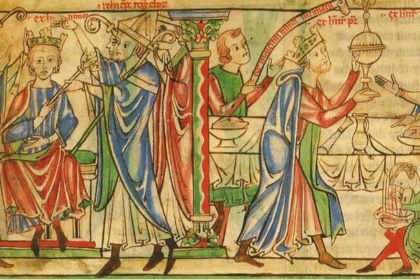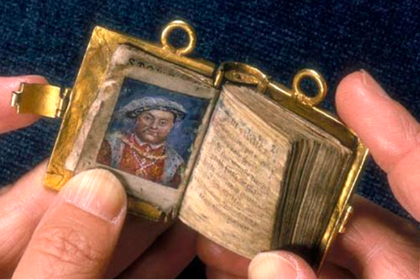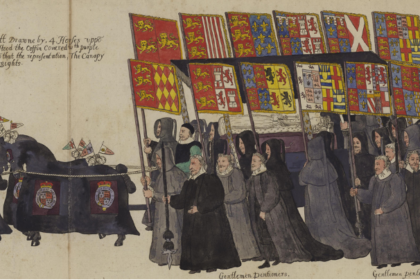As December brings the holiday season, over 400 years ago the Tudor court and courtiers were also preparing for Christmas festivities.
On many Tudor history pages and blogs at this time of year you will see a claim that the first recorded use of the salutation ‘Merry Christmas’ was in a letter from Bishop John Fisher to Thomas Cromwell, written on the 22nd December, 1534; after petitioning Cromwell to be released from imprisonment in the Tower of London, or at least for his conditions to be improved, he signed the letter off with ‘And this our Lord God send you a mery Christmas, and a comfortable, to your heart’s desire.’
However, I recently came across an earlier use of the phrase. Just over a year earlier, on the 18th December, 1533, a Thomas Mayhew signed off a letter to, again, Thomas Cromwell, with ‘God send you a merry Christmas.’
The identity of Thomas Mayhew is unclear; he seems to have been an official from Lancaster, as the body of the letter is concerned with thanking Cromwell for his help in a matter to do with the rights of King’s tenants in the duchy of Lancaster, and noting that more trouble seemed to be brewing due to the actions of a local abbot. I could not find any further information about this dispute, but conflicts between secular and religious leaders were common during this period.
At the very end of the letter, Thomas Mayhew wrote ‘We send you a couple of fat swans for your Christmas’ – both in thanks for past services, and in the hope of further favours. I will discuss it further in a post later this month, but personal gifts were exchanged at New Years during this period, not Christmas. Sending game and foodstuffs to furnish the Christmas table was quite a common form of seeking favour. Cromwell, as the most influential and powerful man in the kingdom next to Henry VIII, was recorded as receiving many such gifts of food and game in the lead up to Christmas – just the day before, he had received ‘a porpoise’ – considered a fine delicacy in the Tudor period – from a Richard Wharton.
Finally, Thomas signed off with the aforementioned ‘God send you a merry Christmas.’
I will not claim this to be the first recorded use of the phrase – this post gives proof of why that isn’t a safe claim to make. But it is earlier than is commonly suggested, albeit by one year. Clearly by the time of this and the John Fisher letters, the phrase had entered common parlance, though perhaps only just. It just adds another little facet to the history of the Tudors and their Christmases.





